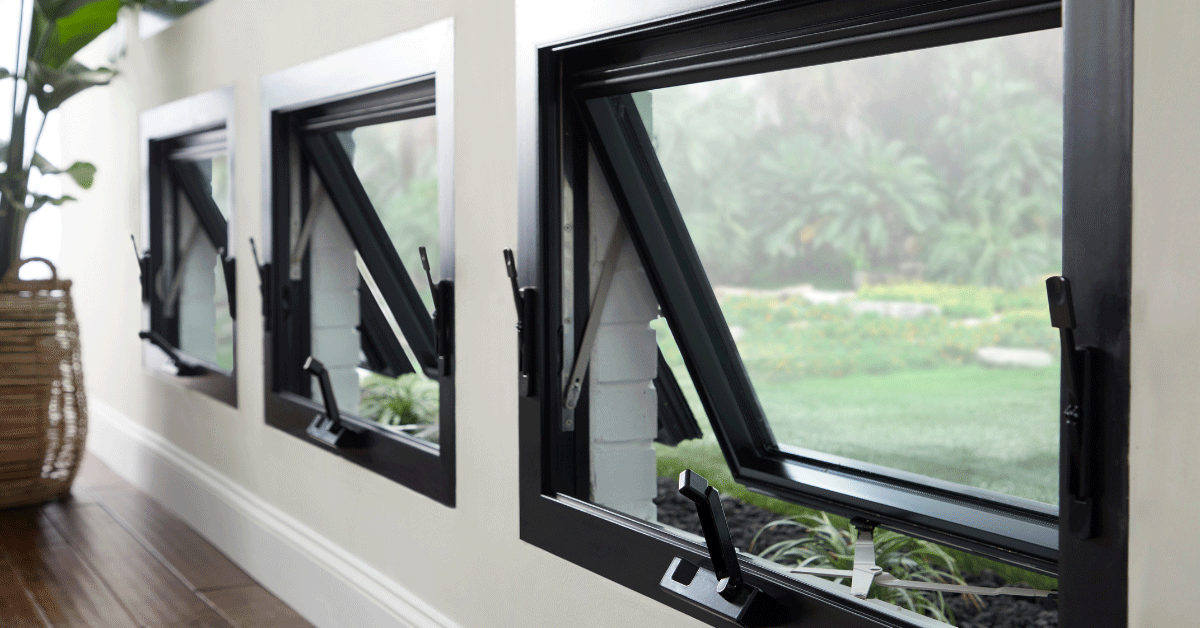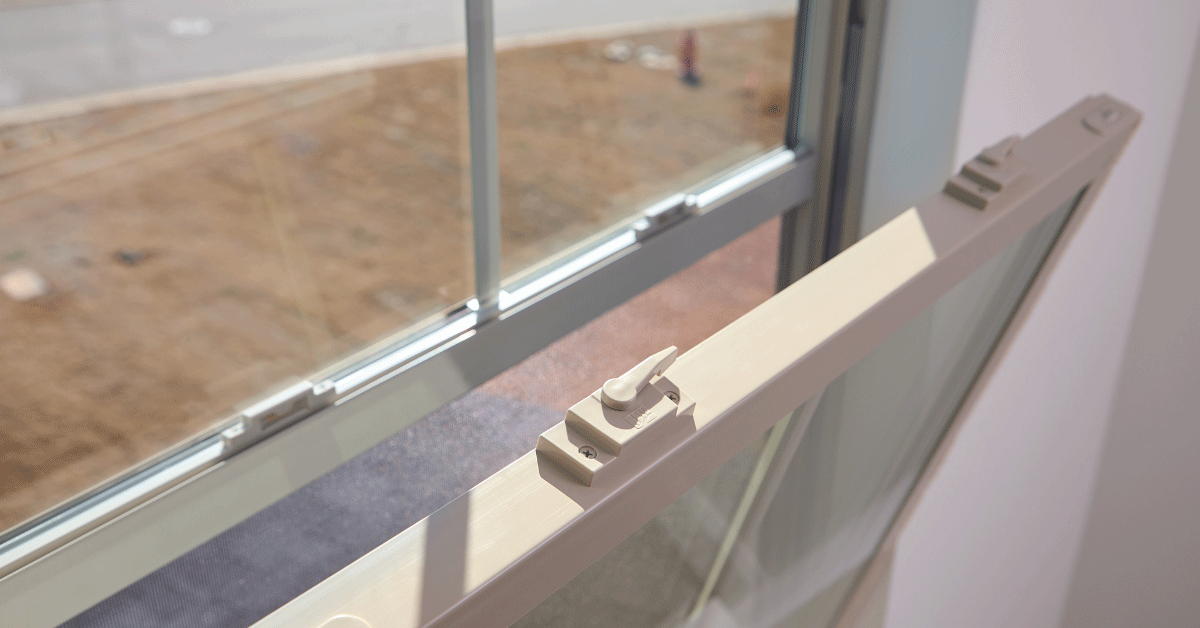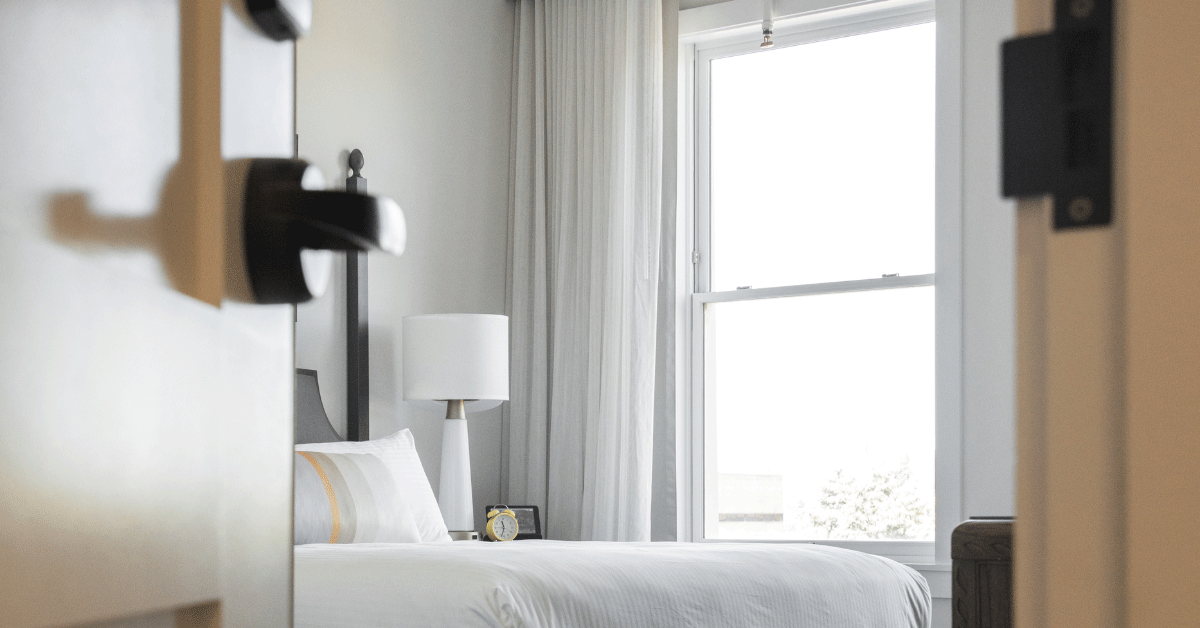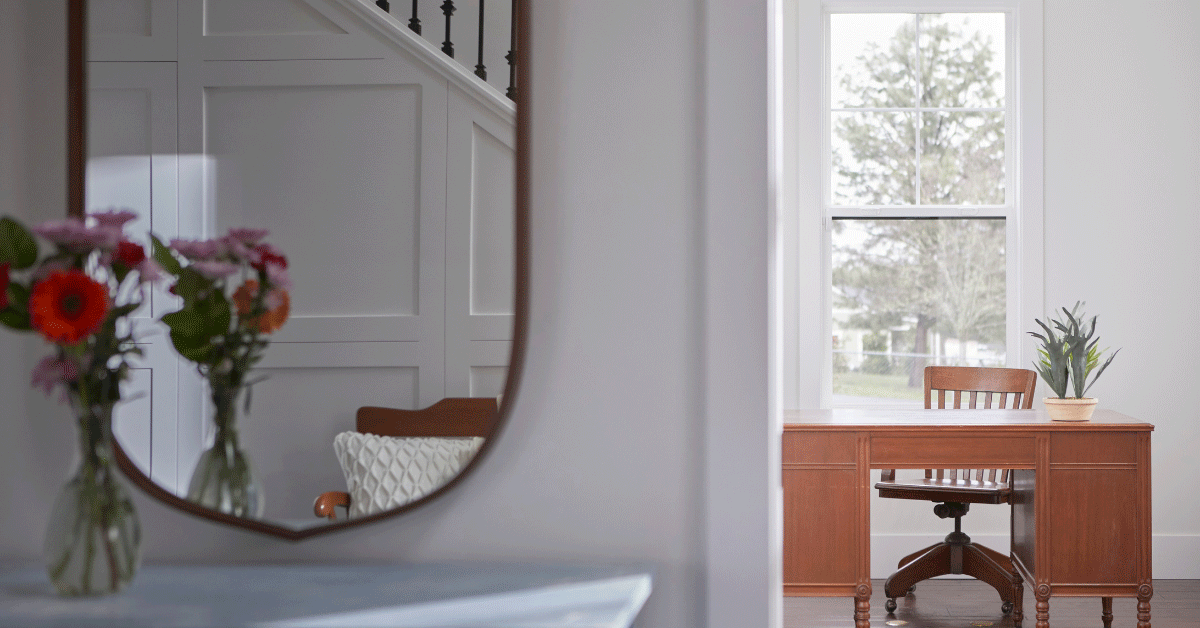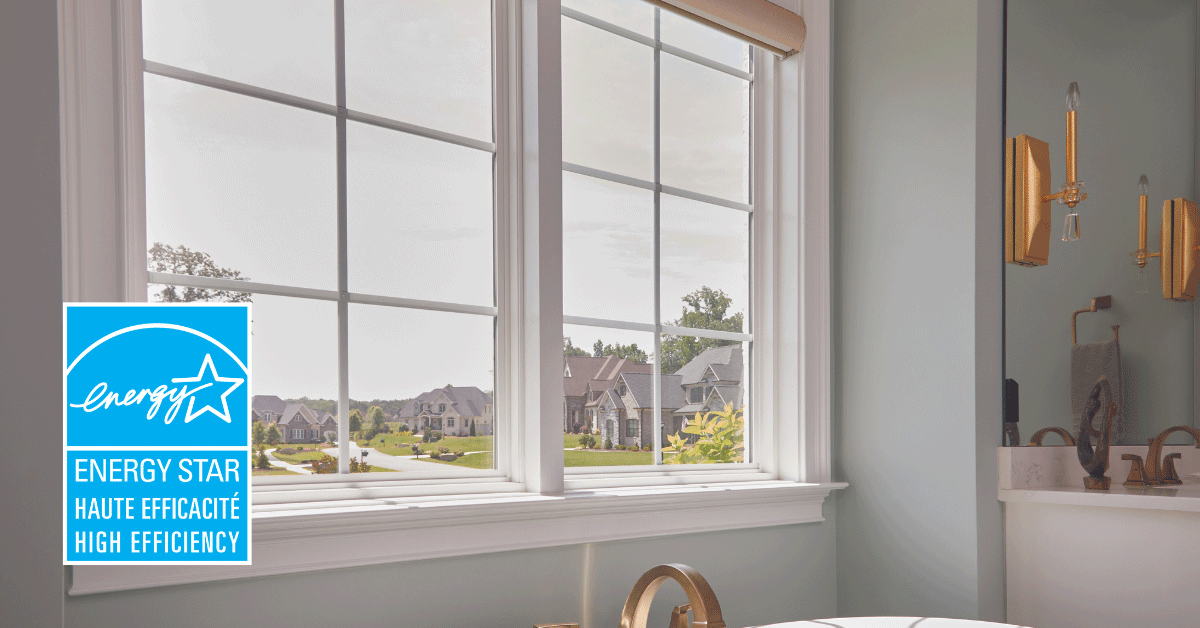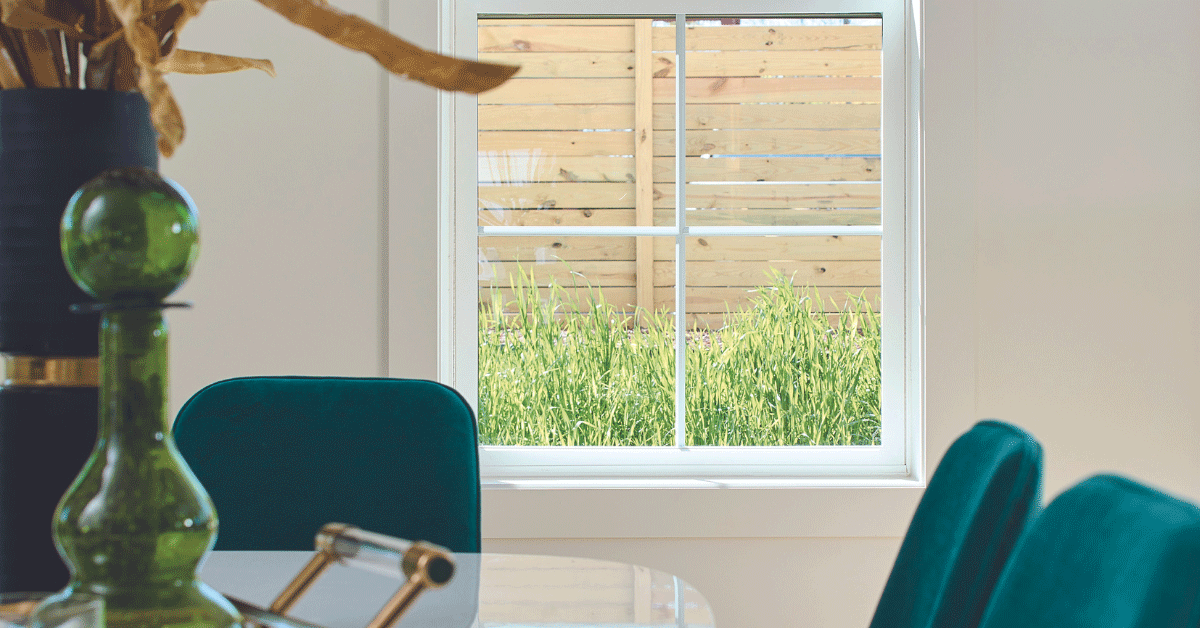Choosing new windows for your home can be intimidating. It’s an important purchase that impacts curb appeal, energy costs and home comfort for many years to come. Fortunately, purchasing new windows can also be fun.
With some expert guidance and an array of available designs, you will find the right windows for you—windows that bring function and beauty to your cherished home.
When choosing the perfect windows, you will need to consider how many panes of glass are best, as well as the role of window coatings in creating energy-efficient, long-lasting windows.
We want to make it easy for you, so we put together this primer on windowpanes and coatings and how they impact window performance, energy efficiency, indoor comfort and the cost of utilities.
Single-pane windows: pros and cons
Single-pane windows are windows composed of only a single layer of glass, rather than two or three layers of glass.
The pros
Although we often recommend double- or triple-pane windows for Canadian homes, single-pane windows do have some advantages.
For one, single-pane windows are less expensive to purchase. They are also lighter in weight and easier to install. From a design perspective, some people may enjoy the look of single-pane glass in a classic window frame.
Single-pane windows can be a good, cost-effective choice in areas where heating and cooling are less of a concern—think garages and sheds. They may also work in mild climates where temperatures are moderate and not prone to a lot of fluctuation. (Lucky you!)
The cons
Single-pane windows can be a “pain.” The lower upfront cost comes with a downside, particularly in challenging climates (ahem, Canada). Over the long-term, single-pane windows can add to your home energy costs and reduce home comfort.
Single-pane windows lack the extra insulating factor that comes with additional panes of glass. This can increase cold air entering the house in wintertime, making for drafty, uncomfortable spaces. It can also allow more heat into the house in warmer weather, elevating your air conditioner’s output and increasing your home energy costs.
Single-pane windows also allow in more street noise, further reducing your family’s comfort. Those who live in a city or busy suburb may find this particularly annoying.
Windows made with a single pane of glass are also easier to break, which might be a consideration if security is a deciding factor for you.
Double-pane windows: pros and cons
Double-pane windows have—you guessed it—two panes of glass.
The pros
Doubling up the layers of glass means better protection from outdoor temperature extremes. Double-pane windows can help to reduce the amount of heat entering your home in summer and preserve indoor heat in colder weather. Their increased insulation makes them more energy-efficient, reducing the need for artificial heating and cooling and lowering monthly utility costs.
Two panes of glass make for a more durable window unit too, for better protection against weather extremes such as high wind and heavy rain or snow.
Double-pane windows also help to reduce the amount of noise that enters your home from the street (or your neighbour’s lawn mower!), meaning you can get that much-needed nap on the weekend.
If noise reduction is a prime consideration for you, be sure to check out our post about acoustic performance in windows. You’ll get tips for achieving your personal sound reduction goals.
The cons
With more glass and better insulation comes a higher upfront cost. This is because double-pane windows require more materials. For best benefit, double-pane windows should be installed throughout the house. This will ensure the energy efficiency and noise reduction benefits are consistent from room to room.
Although the initial costs are higher, double-pane windows will help to reduce energy costs over the long-term as compared to single-pane windows.
Triple-pane windows: pros and cons
Triple-pane windows—made with three layers of glass—are the gold standard for energy-efficient windows in our challenging Canadian climate. While a dual-pane window has two panes of glass with airspace held together around the perimeter with a spacer, triple-pane windows have double the airspace for increased performance and better interior comfort.
The pros
Triple-pane windows offer increased insulation, durability and energy efficiency when compared to double-pane windows.
Three times more glass than a single-pane window equals a significant increase in insulation, benefiting your home’s thermal regulation for better indoor temperatures year-round. Triple-pane windows are the most energy-efficient choice, increasing warmth in winter and cooling in summer and reducing energy costs.
Triple panes may also offer a modest improvement in noise reduction over double panes, depending on other factors. The added layer of glass in a triple-pane window also increases durability and security, protecting from breakage.
The cons
With all of their materials and benefits, triple-pane windows are the more expensive choice for purchase and installation. The reduction in monthly heating and cooling costs over a number of years will help to offset this initial cost though.
As with double-pane windows, you’ll get the ultimate benefit in terms of energy efficiency and home comfort if you choose triple panes for every window in your house.
JELD-WEN’s Northern Tri-Pane Collection
JELD-WEN’s Northern Tri-Pane Collection™ windows incorporate True Tri-Pane Technology™, providing two half-inch airspaces filled with argon gas. The extra airspace between each pane acts as a second layer of insulation. The interior panes reduce radiant heat and condensation, allowing for more cold-weather humidity and eliminating dry winter air.
They outperform dual-pane windows with 50% more insulated space, for reduced condensation and increased efficiency and 50% more gas fill, significantly increasing thermal performance.
Look for ENERGY STAR® windows
ENERGY STAR®-qualified windows reduce overall annual energy costs compared to standard products. Although windows and doors don’t directly consume energy like an appliance does, they can be a significant source of heat loss in your home.
Energy-efficient ENERGY STAR windows help to keep your home more comfortable all year long, even when you’re sitting close by a window. They may also create less condensation in cold weather than a non-ENERGY STAR model.
What role do Low-E coatings play in your new windows?
Once you have decided how many panes of glass your new windows will have, you’ll want to consider the role of Low-emissivity or Low–E coatings.
Low-emissivity glass has been treated with one or more thin layers of metallic particles that work to filter out heat while still allowing natural light to pass through.
Emissivity is a measure of how much thermal energy (such as sunlight or indoor heat) is absorbed by or reflected away from a material. Emissivity is relatively high in regular, clear glass. The glass absorbs heat from the sun and transfers it to the other side of the glass.
By lowering the emissivity of the glass, it reflects the heat rather than absorbing it, limiting the transfer to the other side of the glass and increasing the insulating value. Low-E coatings can be applied to both the exterior and interior glass surfaces of a window to deliver comfort and energy savings in both directions.
Low-E coatings can help to regulate your home’s interior temperature throughout the year, contributing to a reduction in energy costs. Low-E glass helps to control and direct heat radiation, regulating the temperature in hot and cold weather. It can preserve heat inside the house in winter and block extreme heat from entering during the hotter months. It can also block harmful UV radiation and reduce fading of rugs, floors and furniture.
JELD-WEN offers various Low-E glass types, each one suited to different project requirements but all of them increasing comfort and energy savings.
One of our dedicated window experts can help you learn more about what type of glass is best suited for your home renovation or new-build project. Contact us with your questions. We’re here to help!
Explore Related Posts



